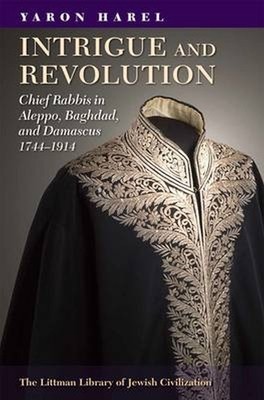
- We will send in 10–14 business days.
- Author: Yaron Harel
- Publisher: Littman Library of Jewish Civilization in Association with Liverpool University Press
- ISBN-10: 1904113877
- ISBN-13: 9781904113874
- Format: 15.5 x 23.6 x 3.6 cm, kieti viršeliai
- Language: English
- SAVE -10% with code: EXTRA
Reviews
Description
This is a book of unexpected drama: all eleven chief rabbis appointed in this period of unprecedented change in the Jewish communities of the Fertile Crescent became the subject of controversy and were subsequently dismissed. This took place against a background of events rarely discussed in the context of Jewish society: crime, hooliganism, slander, power struggles, sexual promiscuity, and even assaults and assassination attempts on rabbis. Using a wide range of testimonies gleaned from Ottoman Jewish, Arabic, and European sources, Yaron Harel paints a colourful picture of these upheavals set firmly in the social and political context of the time and far removed from the commonly accepted image of Jewish communities in the Ottoman empire. Jews were also affected by modernization and political conflict in the wider society of the time, and these too gave rise to power struggles. The chief rabbis were at the forefront of these confrontations, especially those that resulted from
the new inclination towards Western culture. Most of them recognized that the challenges of modernization had to be met, although in a way that did not endanger religious principles.
EXTRA 10 % discount with code: EXTRA
The promotion ends in 22d.06:07:14
The discount code is valid when purchasing from 10 €. Discounts do not stack.
- Author: Yaron Harel
- Publisher: Littman Library of Jewish Civilization in Association with Liverpool University Press
- ISBN-10: 1904113877
- ISBN-13: 9781904113874
- Format: 15.5 x 23.6 x 3.6 cm, kieti viršeliai
- Language: English English
This is a book of unexpected drama: all eleven chief rabbis appointed in this period of unprecedented change in the Jewish communities of the Fertile Crescent became the subject of controversy and were subsequently dismissed. This took place against a background of events rarely discussed in the context of Jewish society: crime, hooliganism, slander, power struggles, sexual promiscuity, and even assaults and assassination attempts on rabbis. Using a wide range of testimonies gleaned from Ottoman Jewish, Arabic, and European sources, Yaron Harel paints a colourful picture of these upheavals set firmly in the social and political context of the time and far removed from the commonly accepted image of Jewish communities in the Ottoman empire. Jews were also affected by modernization and political conflict in the wider society of the time, and these too gave rise to power struggles. The chief rabbis were at the forefront of these confrontations, especially those that resulted from
the new inclination towards Western culture. Most of them recognized that the challenges of modernization had to be met, although in a way that did not endanger religious principles.


Reviews